
Why did Hitler's ally Bulgaria refuse to fight against the USSR?
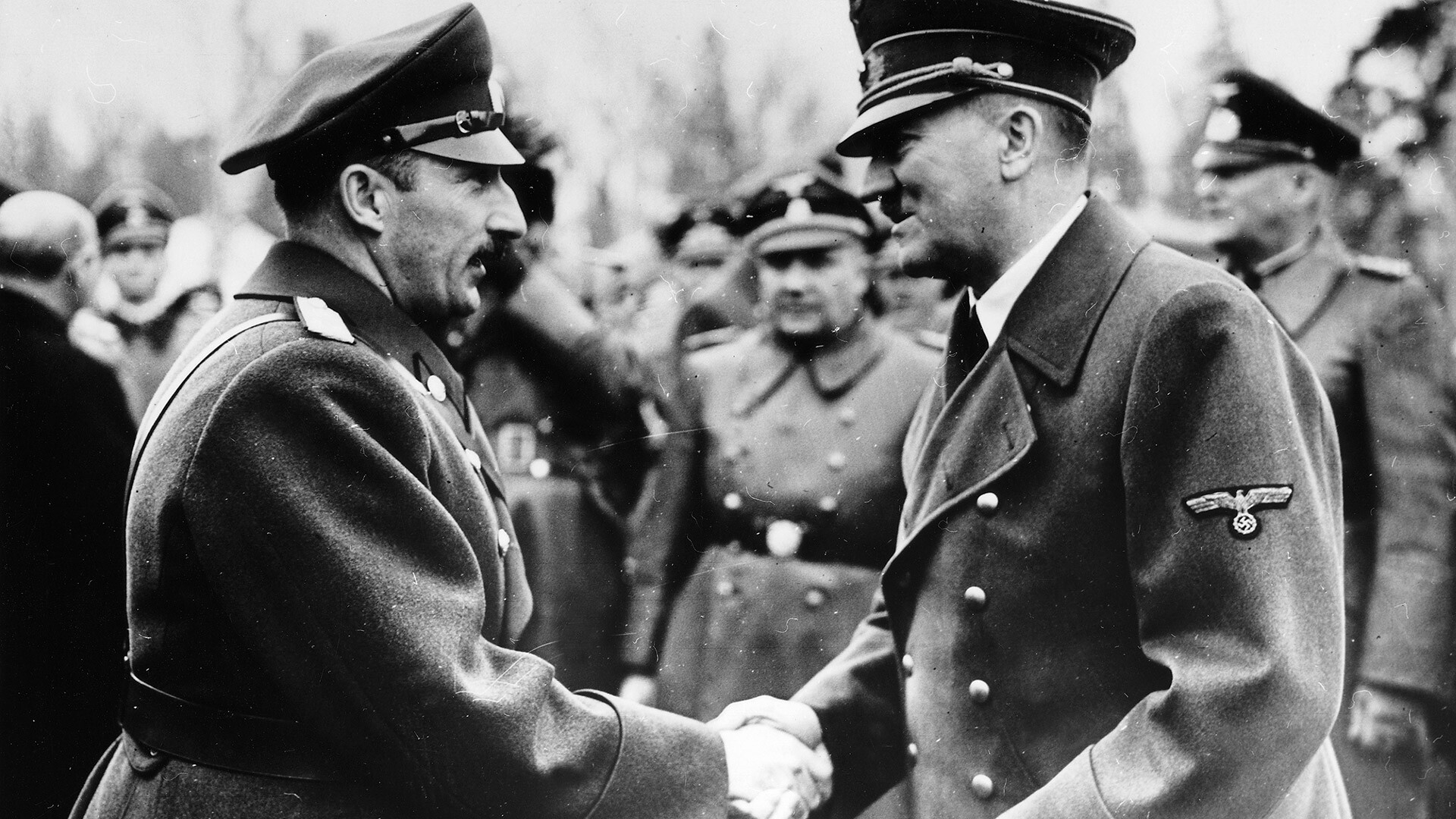
A whole array of Germany's allies and satellites took part in the "crusade against Bolshevism" that Hitler embarked on in 1941. Italy, Romania, Finland, Hungary, Croatia and even tiny Slovakia dispatched their military contingents to the east.
There was one country among the Nazi bloc powers, however, that categorically refused to fight against the Soviet Union. That country was Bulgaria. How did it find the courage to do so?
At the crossroads
From the very beginning of World War 2 the Bulgarians took a wait-and-see position, siding with neither of the warring sides. On Sept. 15, 1939, the government of Georgi Kyoseivanov declared the country's full neutrality in the conflict that had broken out in Europe.
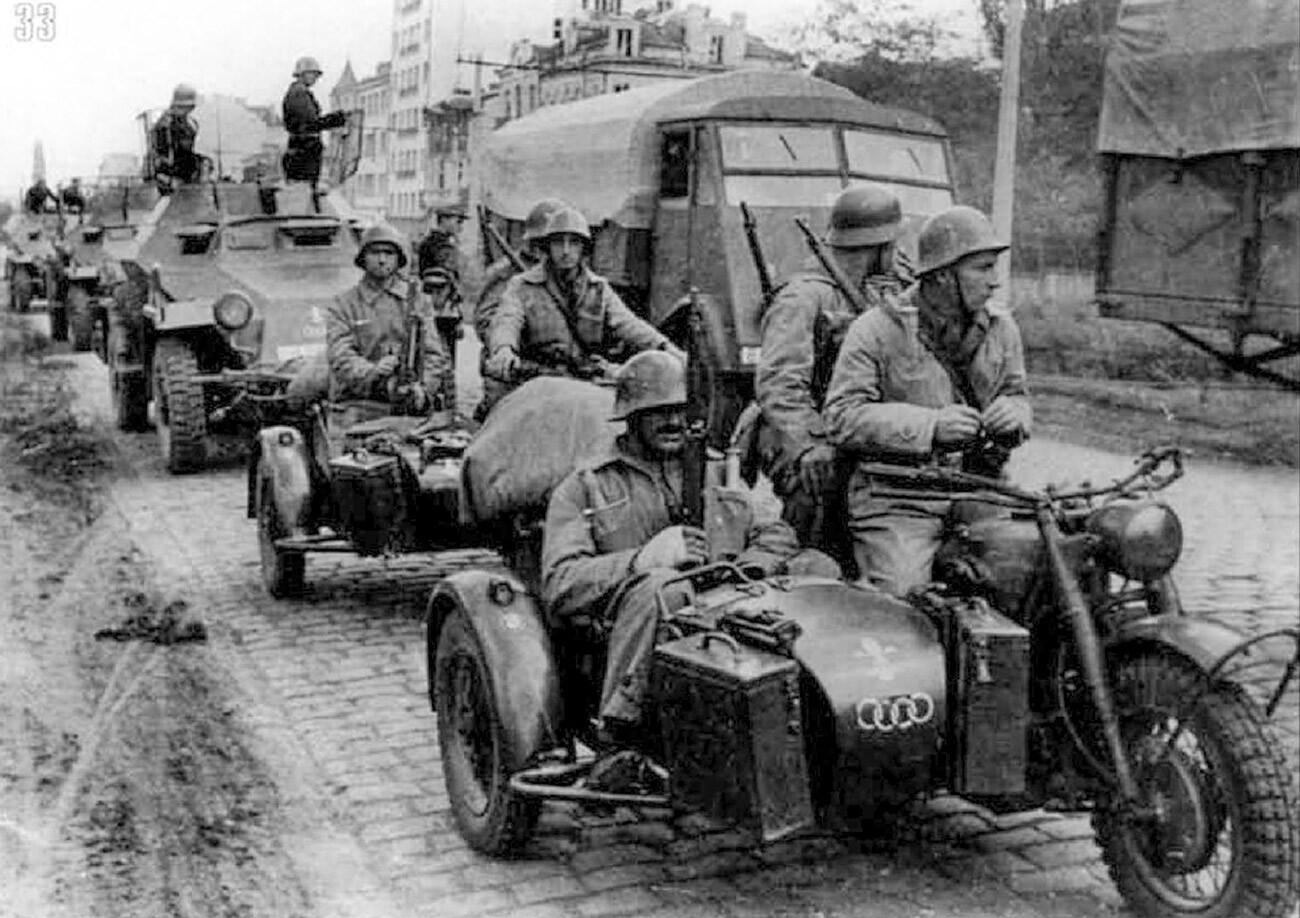 Bulgarian army.
Bulgarian army.
At the same time, Bulgaria was determined to revise the terms of the Treaty of Neuilly-sur-Seine of 1919 under which she (as a country defeated in World War I) had lost vast territories, including part of Macedonia, Dobruja and Western Thrace. Nevertheless, Sofia intended to regain the lost territories by peaceful means.
In 1940, Germany, the USSR and the Entente powers staged a real diplomatic scramble for Bulgaria. Each of them tried to lure her into their own camp, promising to facilitate the return of the lands that were so important to her.
The Soviet Union was extremely popular in Bulgarian society. The Bulgarians remembered that it was thanks to Russia's victory in the war against the Ottoman Empire that their homeland had regained its independence in 1878. Also, the standing of the left-wing movement in the country was very strong.
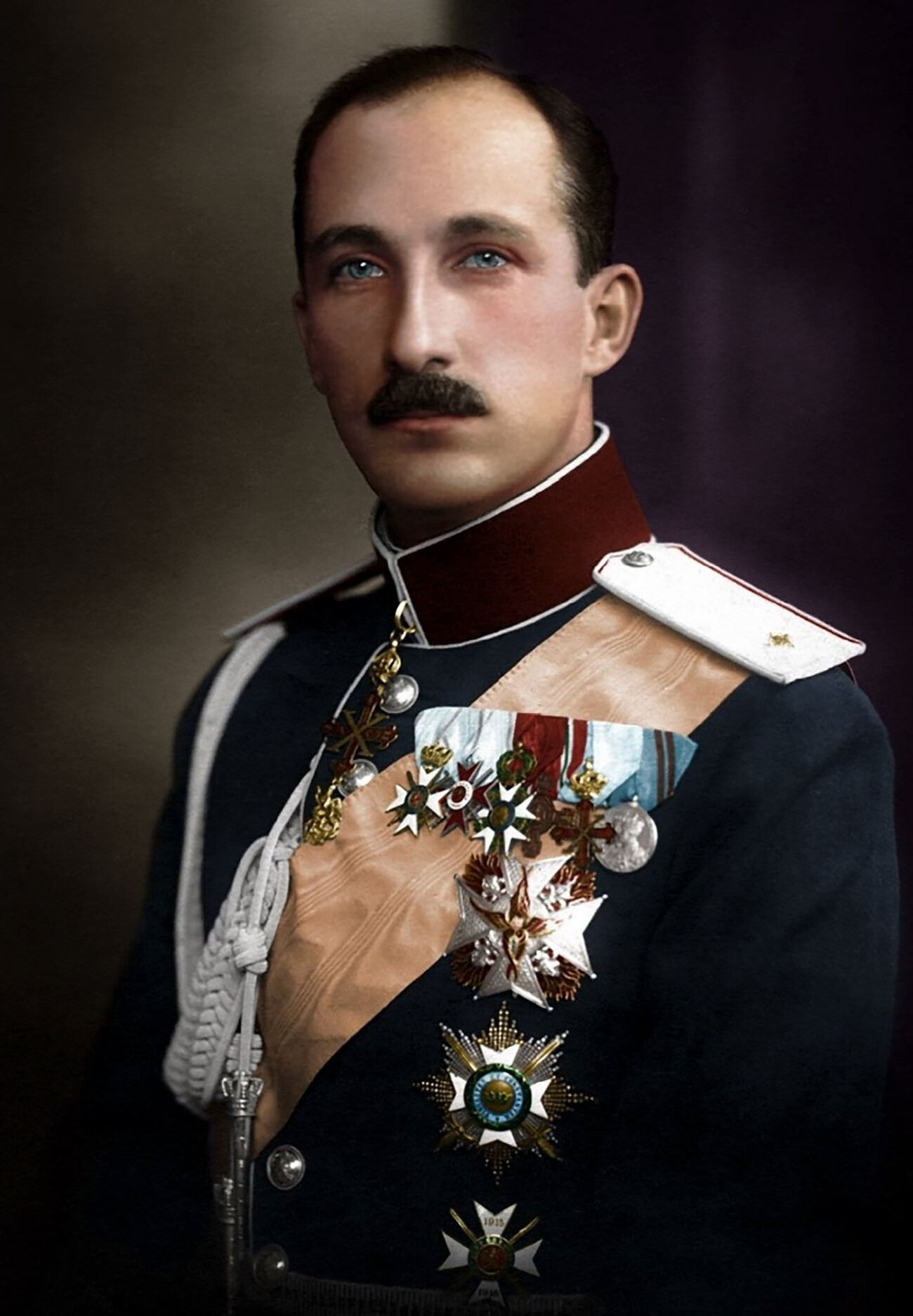 Tsar Boris III.
Tsar Boris III.
In the end, nevertheless, the country's leadership made its geopolitical choice in favor of the Third Reich. The decision was influenced by the fact that the Bulgarian and German economies were closely linked, and the Bulgarian army was heavily dependent on German arms supplies. "Your emotions tell you - Russia, but if you listen to the voice of reason, the answer is Germany!" argued Tsar Boris III of Bulgaria.
Together with Hitler
Thanks to Berlin's pressure on Romania, in September 1940 Bulgaria was able to regain Southern Dobruja. Despite this, the country's leadership tried for as long as possible to avoid joining the military and political block of the Axis countries.
The Bulgarians, however, could not contrive to evade this important decision for long. After the failure of the Italian invasion of Greece at the end of 1940, the importance of the Balkans for the Nazis began steadily to grow and their diplomatic pressure on Sofia increased many times over.
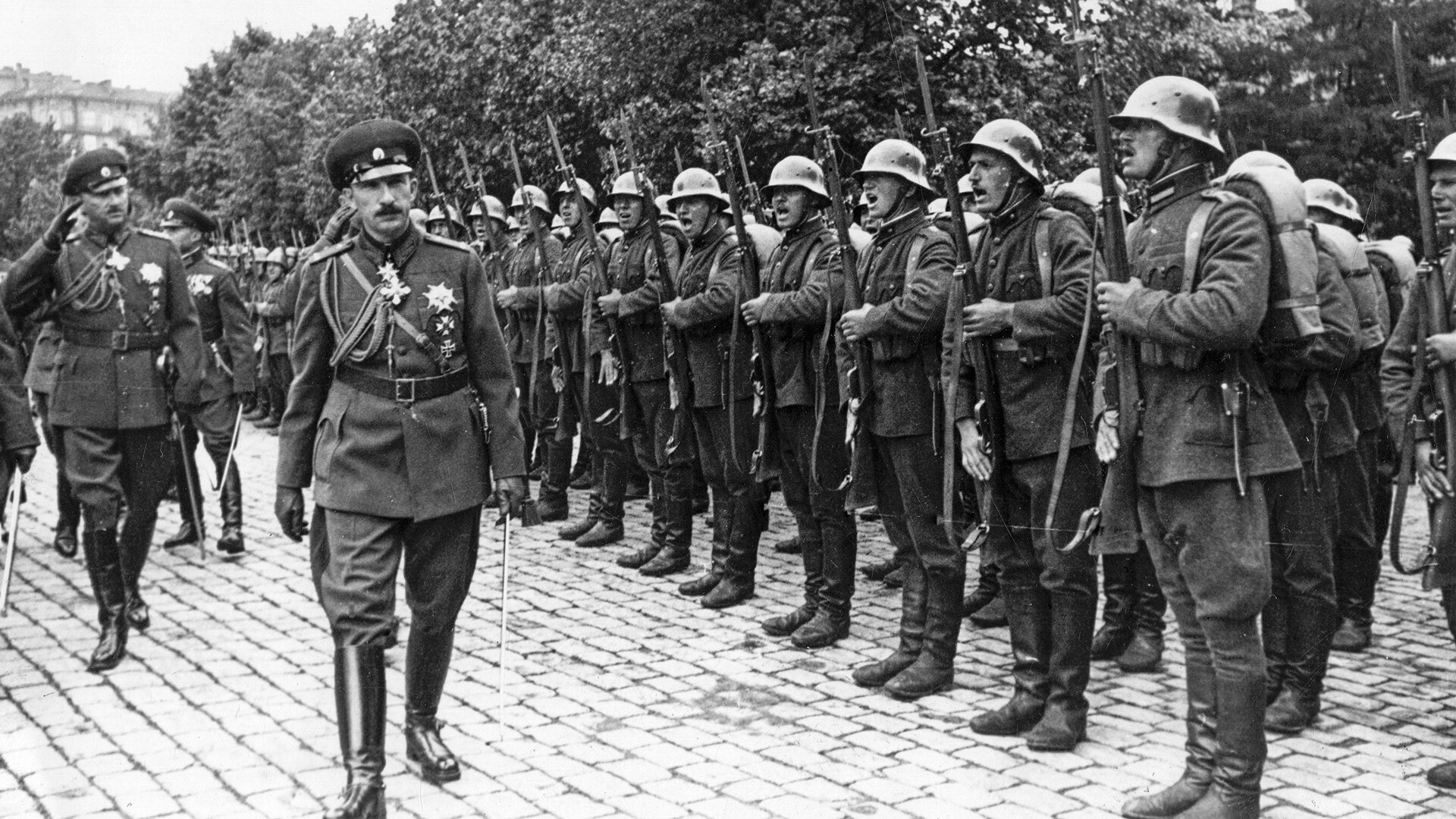 Tsar Boris III inspecting his troops.
Tsar Boris III inspecting his troops.
In the end, on March 1, 1941, Bulgaria officially joined the Berlin-Rome-Tokyo Pact and the very next day the Wehrmacht's 12th Army entered her territory. In April, the Bulgarians took part in the occupation of Yugoslavia and Greece, thus satisfying their territorial claims.
After the start of Operation Barbarossa against the Soviet Union on June 22, 1941, Hitler began to put strong pressure on Tsar Boris to send Bulgarian troops to the front, but invariably received a categorical refusal. The monarch was mindful of the level of pro-Russian sentiment in society. "My officers are sympathetic towards Germany. The people love Russia," the autocrat stated.
Despite the fact that the Bulgarians and Russians had found themselves on different sides of the barricades back in World War I and had even engaged in open armed conflict near the city of Dobrich in 1916, the actual dispatch of troops to Soviet territory was quite another matter and could have sparked major unrest inside the country (given that the resistance movement was already inexorably gathering strength in Bulgaria).
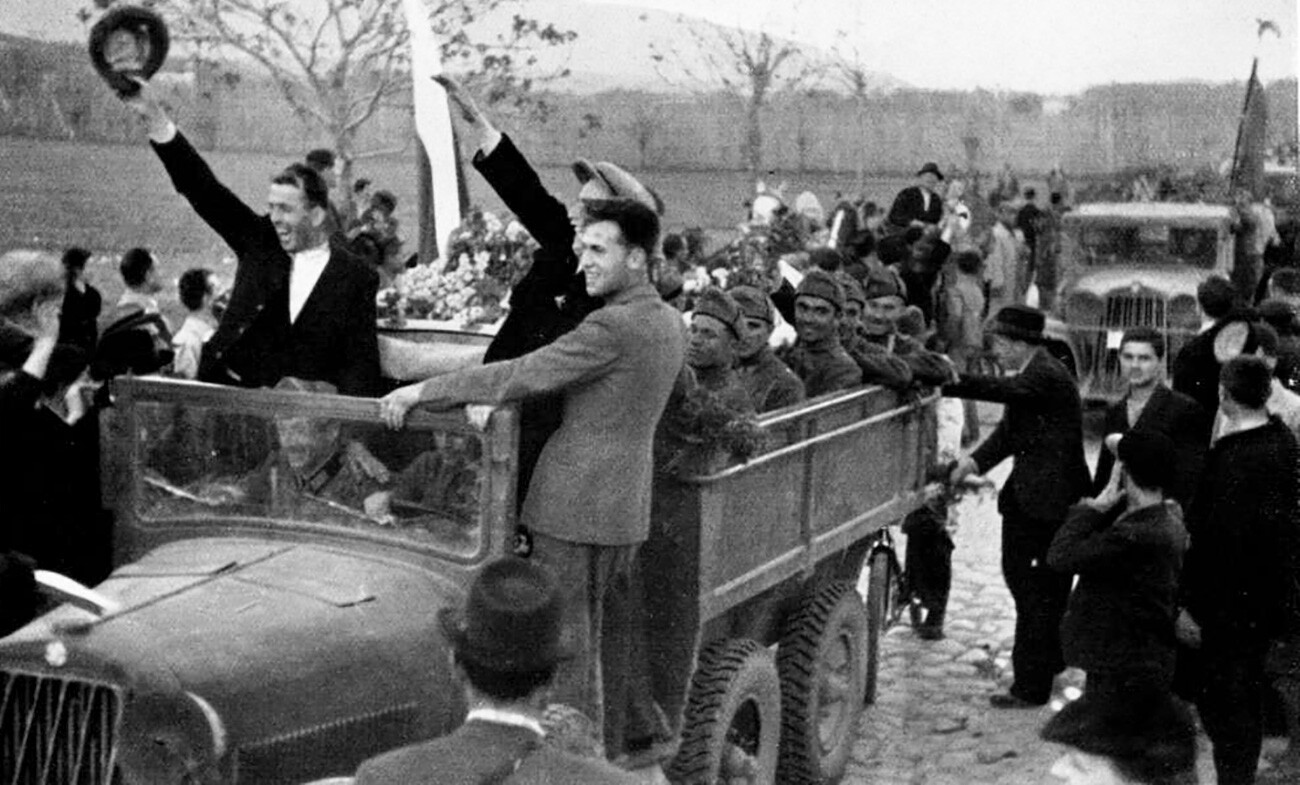 Bulgarian troops entering Vardar Macedonia in April of 1941.
Bulgarian troops entering Vardar Macedonia in April of 1941.
On Aug. 2, 1941, the leader of the Bulgarian Communist movement, Georgi Dimitrov, wrote to Stalin: "According to the Central Committee of our Bulgarian party, the situation in the country is extremely tense. The Germans are insistently pressing Bulgaria to take an active part in the war against the Soviet Union. Although still wavering, Tsar Boris III and the government are already preparing to enter the war. At the same time, the overwhelming majority of the people and soldiery take a plainly negative view."
Eventually, however, Bulgaria did not declare war on the USSR, becoming the sole satellite of Germany to retain diplomatic relations with Moscow.
War against the Soviet Union
An event that profoundly shook the whole of Bulgarian society took place on Aug. 28, 1943. Tsar Boris III died suddenly a few days after returning from a meeting with Hitler in East Prussia. The monarch wasn't even 50 years old. The official cause of death was a heart attack, but rumors circulated for a long time afterwards that the Nazis had poisoned the monarch for refusing to send troops to the Eastern Front.
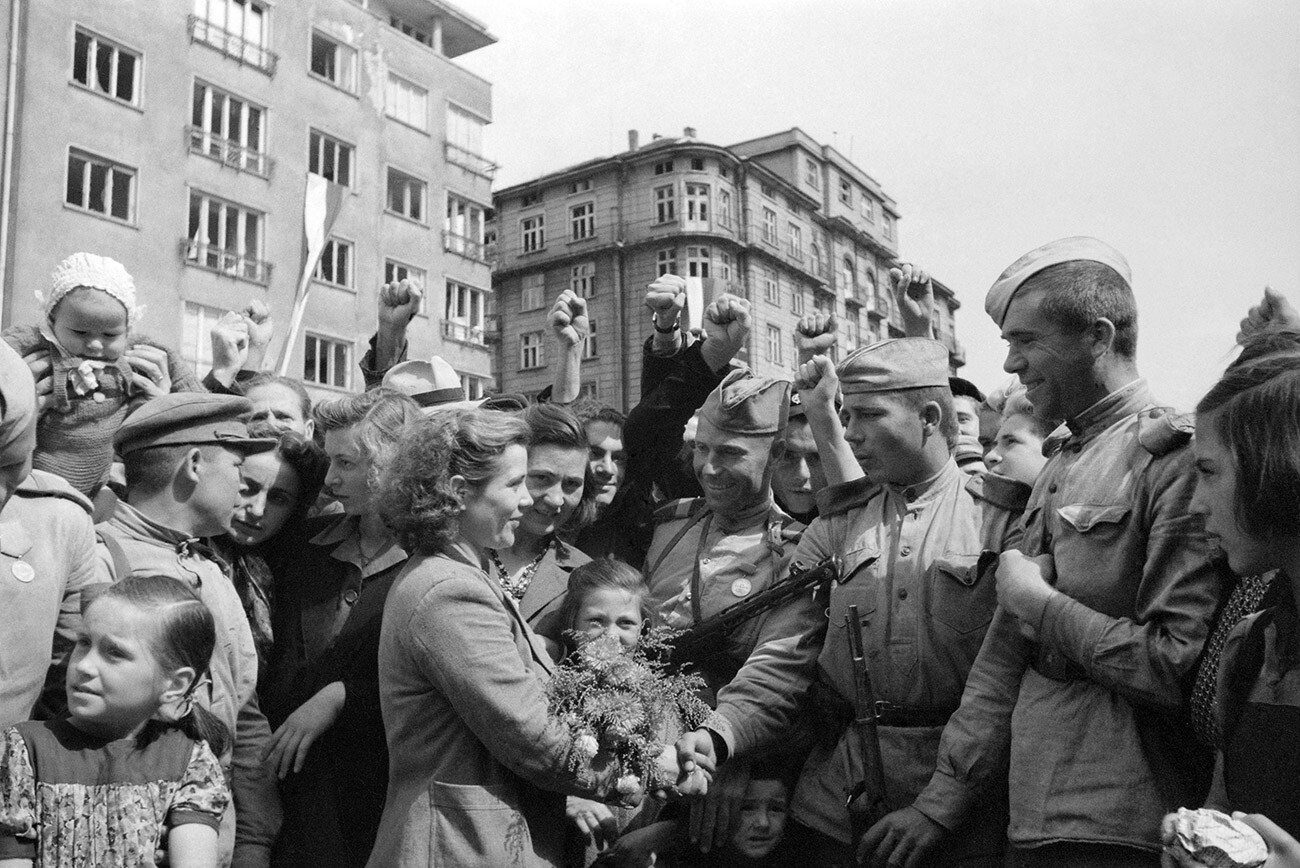 Soviet troops being greeted by citizens of Sofia.
Soviet troops being greeted by citizens of Sofia.
By that time there was no question of Bulgaria's entering the war against the Soviet Union. Having smashed the Wehrmacht in the battles of Stalingrad and Kursk, the Red Army had started its inexorable westward advance. At the same time, the Americans and British were now in southern Europe, knocking Italy out of the world conflict.
Bulgaria embarked on a policy of distancing herself from Germany, ejecting the Wehrmacht from the country and seeking reconciliation with the U.S. and Britain, with whom it was currently in a state of war. Nevertheless, the leadership did not decide to sever all ties with the Third Reich or to start interning its troops, as demanded by the Soviet Union.
In early autumn 1944, the Red Army approached the Bulgarian border. Since around 30,000 German troops were still stationed in the country (they were in the middle of a hasty evacuation), the USSR regarded her as an ally of the Nazis. On Sept. 5, 1944 it declared war on Bulgaria.
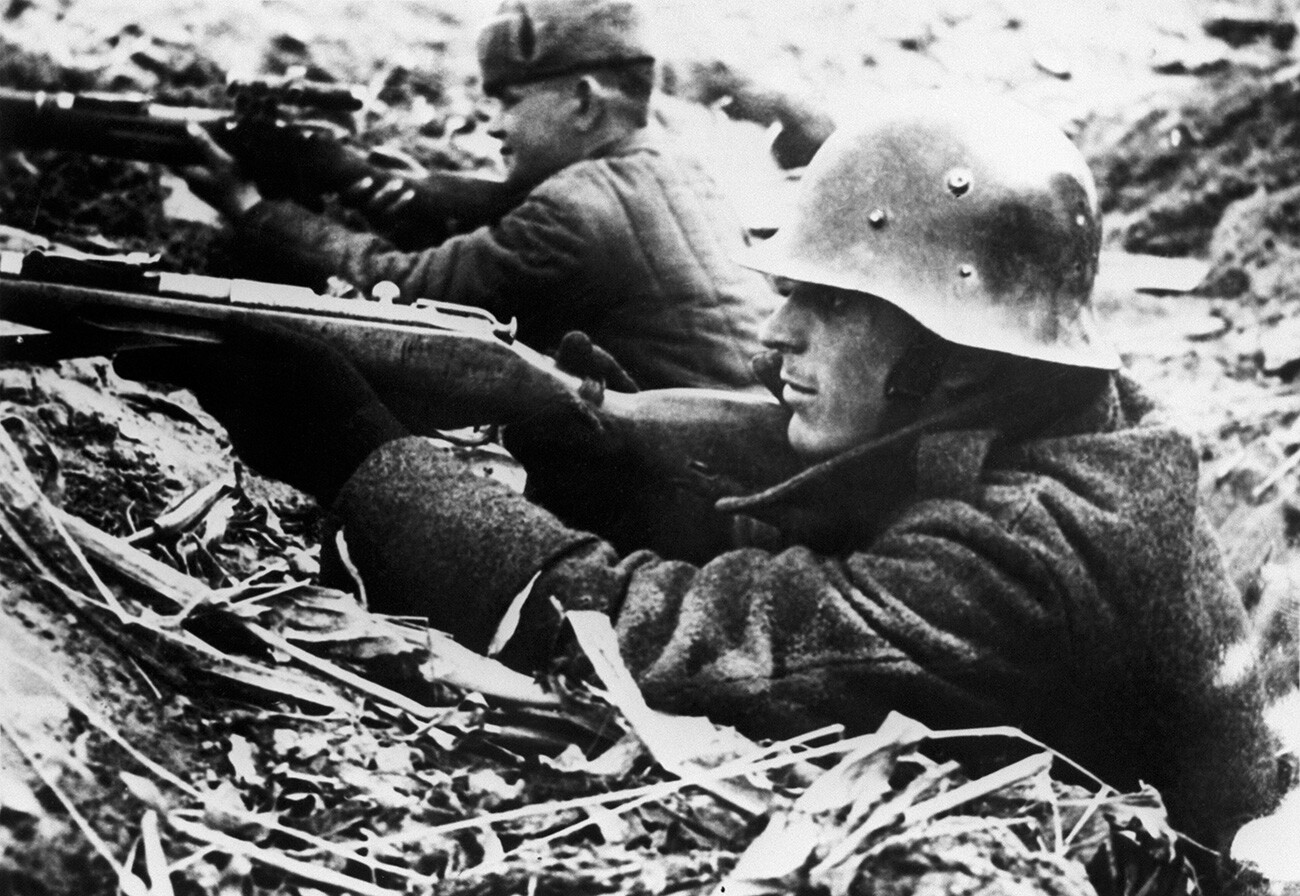 Soviet and Bulgarian soldiers during the battles to liberate Hungary.
Soviet and Bulgarian soldiers during the battles to liberate Hungary.
The Soviet troops did not budge from their positions for several days, however, in order to give the local Communists (with whom Moscow maintained relations of close cooperation) the time and opportunity to seize power in the country.
Before the start of a Soviet advance scheduled for Sept. 8, a coalition of leftist anti-Fascist forces, known as the Fatherland Front, staged a coup in Sofia, and established control over the majority of the country. The new government immediately declared war on the Germans.
Entering Bulgaria on the appointed day, the Red Army progressed through the country without encountering any resistance. Soviet servicemen, for their part, did not proceed to disarm the local troops. Only a little time would pass before - together, shoulder to shoulder - they would be liberating Yugoslavia, Hungary and Austria from the Nazis.












